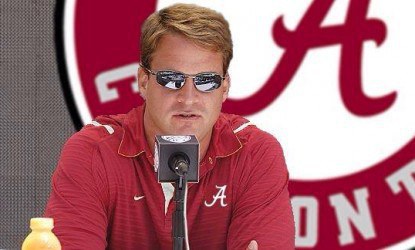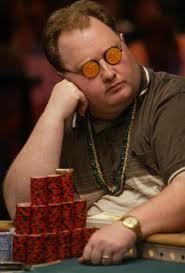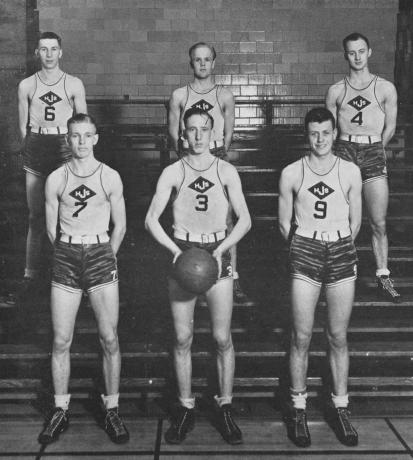POWER MOVE: Who can get away with wearing sunglasses inside
There are only two reasons to wear sunglasses inside (excluding for any medical/eye issues).
Reason one (and this is by FAR the most common) - said inside sunglass wearer is a Grade A loser/jerk/poseur/idiot, and the sunglasses are screaming 'Look at me'
Exhibit 1 - Lane Kiffin (back when he was still coaching at Alabama).

As I mentioned - really jerky.
Two (much less common but far more interesting) - the inside sunglass wearer is competing, with you, me, pretty much everybody around him or her, and doesn't want to give away any hint to what they may be thinking or feeling. The sunglasses in this case are saying something totally different - 'Don't look at me.'
Exhibit 2 - Greg 'Fossil Man' Raymer - professional poker player most famous for winning the 2004 World Series of Poker Main Event (and a $5M prize)

Pro poker players doing the sunglass inside thing at the table is pretty common now, but back in 2004, Raymer was kind of an innovator - and a savvy competitor. Hard to get a read on a person when they are hiding behind the shades.
Exhibit 2A - And my new hero, one Anna Wintour, fashion industry icon, and in this picture seemingly disrespectful to Queen Elizabeth by not removing her trademark sunnies.

But why does Wintour rock the shades? Hint - it isn't because she is trying to be too cool for the room. It is because she doesn't want you (or me or anyone else), to know what she is thinking, particularly as she sits in the front row of a fashion show, eyeing the latest designs.
From a recent piece on Business Insider explaining Ms. Wintour's affinity for the shades: (edited a little)
If anyone's actually watched Anna Wintour in front row fashion shows before, they'd know she always wears her blacked out sunglasses so that people and prying media cameras cannot read and reveal her true thoughts on the fashion items as they pass her on the catwalk.
And that's the reason the real ballers go with the sunglasses inside look. When everyone wants a piece of what you are thinking, and it is not in your best interests necessarily to let them know what you are thinking, then players like Raymer and Wintour put their guard up, and kind of dare you to call them out on it.
But when you win as much as Raymer and Wintour have in their careers, most folks don't bother to call them out after all, and if they do, it really doesn't matter, because after all, who is doing most of the winning? And one thing we see in most winners - they are often willing to do things that the rest of us wouldn't consider 'proper'.
So here's the move I want you to consider. That next 'big' project or staff or client meeting when things could get a little tense, when you do want or need to play your cards, (sorry Raymer), close to the vest, and to not reveal what you are really thinking or feeling - do you have the guts to walk in like Wintour, with a set of blacked out shades? How would Jerry from accounting react when he looked at you an all he got back was a stone face and a set of Ray-Bans?
Could you pull it off?
Wouldn't it be awesome if you did?
Have a great day!

 Steve
Steve
